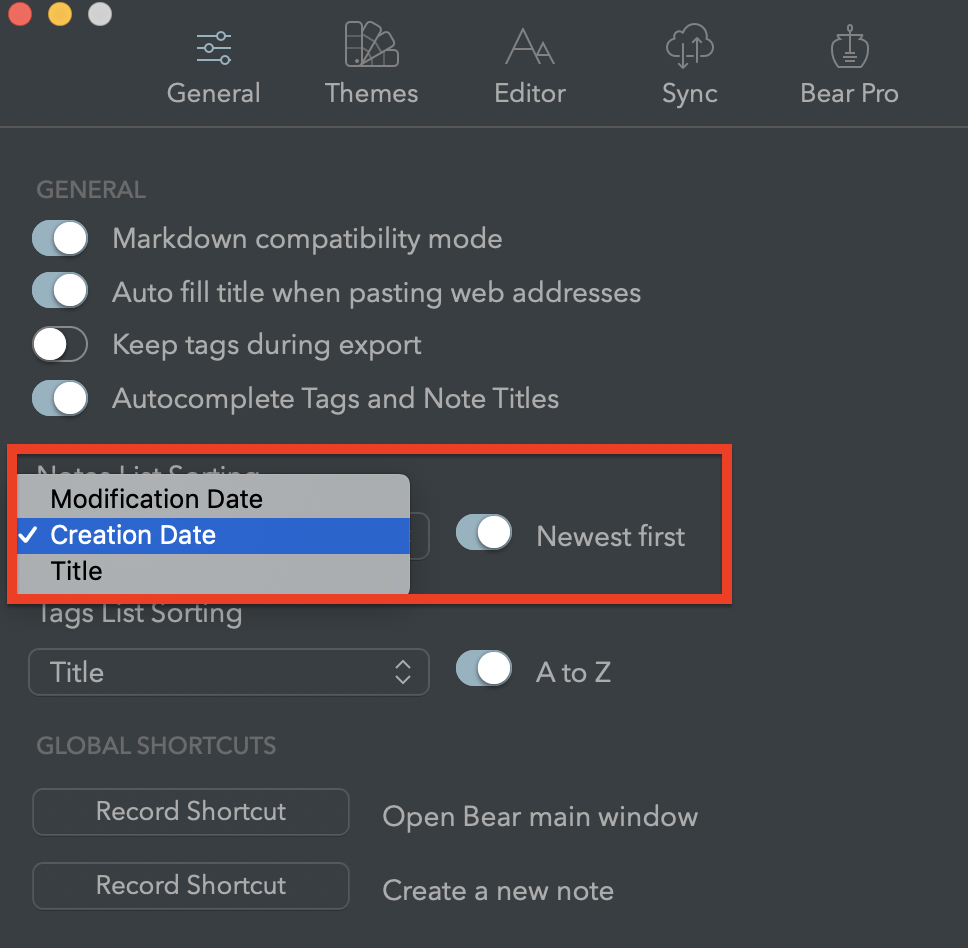how to find your notes quickly (in bear)
2019-04-28
|~3 min read
|564 words
I use Bear as my digital note keeper and place where I write. As I continue to add more notes to it (6k and counting), being able to find my notes quickly is becoming more important.
Here are a few tips I’ve adopted to help myself find what I’m looking for more quickly.
There are a few different ways that I use Bear (and my blog) to help me find things I want to remember later. I use multiple tactics, but three stand out:
- Use (nested) tags
- Create (and Modified) dates
- Writing with Search In Mind
Use (nested) tags
Discovering nested tags was around the time I fell in love with Bear. It’s far and away one of my favorite features.
While tags are great - they can also get overwhelming - so I’ve adopted a variation of Michael Hyatt’s strategy on tags that I’ve found quite helpful for organizing (and finding) my notes.
Not only does it allow me to organize my notes much more efficiently, it helps me create clusters of similar notes and follow a daisy chain between notes on topics. A few things to remember: 1. If you left-click on a tag in Bear, it will navigate you to where the note lives in the tag structure. 2. Searching for nested tags is slightly un-intuitive. Even though the nested tag is a tag, the signifier is a / not a #. So, if your example tag is #recipes/vegetarian/stew, but you also have #receipes/dinner/stew, and you really want stew for dinner, if you search #stew, Bear will find nothing. However, searching for /stew will return both categories.
Create (And Modified) Date
Sometimes all I have to go on for a search (or really, the only thing I care about) is when I wrote or modified a note.
The easiest way to do this is by changing how your notes are organized — options include Title, Created Date, and Modified Date. I prefer Created Date for most purposes to give me a chronological view of when I created notes.
The relative dating of notes (i.e. , 1h, 1w, 1m.) is helpful, but can often obscure the date that I really care about since it’s unclear when the week started - whether it was this week (Monday-Sunday) or the past 7 days, etc.
To combat some of the ambiguity the Bear team has added a bunch of Special Searches to help find exactly what you’re looking for. These searches are helpful, though I will admit they’re more limited than the Search Grammar available in Evernote

Writing With Search In Mind
By far the way I help myself the most is by thinking about what a future me might look for.
If I want to know how to quickly find notes in Bear at some point in the future, chances are high that I’ll search for “Find notes quickly” and this post will come right to the top.
Spending an extra minute or two on the front end tot change the title or add a specific sentence makes a world of difference. As a result, I like to think of my Bear app / blog as a little personal wiki - a place where I can go and do a quick search to find exactly what I did in the past to solve a particular problem.
Hi there and thanks for reading! My name's Stephen. I live in Chicago with my wife, Kate, and dog, Finn. Want more? See about and get in touch!